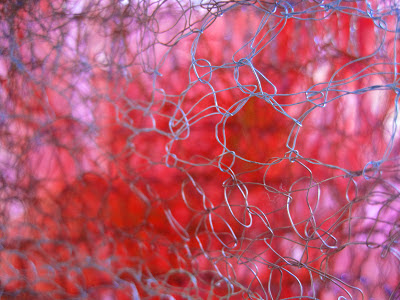‘I dreamed that night, after so many desolate nights without dreams. I
saw colours, red and black, life and death. They interpenetrated, they did not
fight each other as I would have expected even in a dream. They changed form continually, they
continually produced new patterns, which could be unbelievably beautiful. They
were like waters, like a sea. In the middle of the sea I saw a bright island,
which I was approaching rapidly in my dream - for I was flying; yes, I was
flying! What was there on the island? What kind of creature? A human being? An
animal? It glowed the way only Aeneas glows at night. What joy. Then headlong
fall, breeze, darkness, awakening.’
Wolf, Christa,
1984. Conditions of a narrative.
in Wolf, Christa, 1984. Cassandra: a
novel and four essays.
Translated from the German by Jan van Heurck. London: Virago
p. 124









































